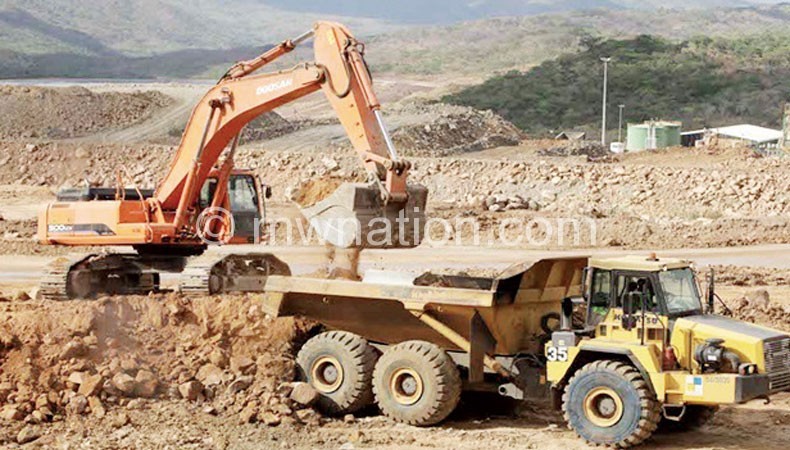Malawi earns K1.7 billion from mining royalties

Malawi Government, through the Ministry of Mining says it collected K1.7 billion (about $4.2m) from royalties and other fees in the mining sector in 2013, a figure which is four times higher than what was collected in the preceding year.
“Our revenue collection from royalties and other fees increased four times during the year peaking at K1.7 billion compared to the previous year’s K385 million [about $962 000],” said Minister of Mines John Bande on Monday.
Bande was asked to provide the public with a performance report for the mining sector last year and in particular the challenges and successes that characterised the sector which many believe is booming.
He said his ministry over-performed despite the budgetary constraints, citing the launch of the first ever Mining Policy for Malawi on 10 April 2013 as well as the drafting of the first ever Artisanal and Small-Scale Mining Policy.
The minister also highlighted the drafting of the Petroleum (Exploration and Production) Policy and review of the Petroleum (Exploration and Production) with the technical support from Commonwealth Secretariat.
“We have come up with a model Mining Agreement and a Petroleum Sharing Agreement. These documents will be used as a basis for negotiating with companies on mining and petroleum exploration and production,” said Bande.
According to Bande, his ministry is almost through with reviewing the Mines and Minerals Act. He added that the document is expected to be submitted to Ministry of Justice ‘as soon as we have done the final public consultations.’
He said a good number of his ministry’s officers have been trained in various fields in the mining sector particularly on issues to do with mining governance, negotiating mining agreements, mineral taxation and environmental management of the sector.
Bande said five officers left for the Netherlands to study a master’s of science in geology and earth science in September 2013.
“The ministry negotiated scholarships with the Government of Botswana. As a result 10 scholarships were offered to Malawians to study geology and mining engineering courses at University of Botswana and Botswana University of Science and Technology,” he added.
He added that his Ministry in conjunction with the Malawi Polytechnic is developing a curriculum for mining and mineral processing engineers and that the draft curriculum is being reviewed for implementation.
Commenting on the challenges gripping his ministry, Bande singled out inadequate operational resources for general operations, inadequate human resource capacity, outdated legal framework and lack of capital to invest in infrastructure and facilities for mineral testing and analysis.
Said Bande: “We have not been able to review all the mining laws that we had planned to review. The ministry has not concluded negotiations with Globe Metals and Mining on the Kanyika Mining Development Agreement. Again, we were not able to submit the Draft Mines and Minerals Bill to Justice and subsequently to Parliament for passing into law as originally planned.”






Mr Minister, my plea is simple please commit yourself to bring the price of cement down in Malawi. Cement is one of the most expensive products though it is made locally. If we have to grow and build infrastructure the government must consider allowing people to import cement as the local companies seem to be in collusion when one looks at how this product is priced. And why don’t we allow more players to come in to reduce its cost to consumers. Why does the govt not intervene. I think we getting ripped of
concerned citizens say they closing all minnes -do we want to have a better economy???? – how many jobs lost in Mulanje